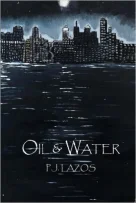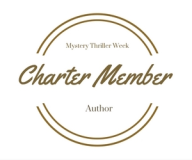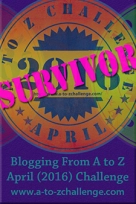This year I joined the Board of the Global Water Alliance in Philadelphia and have gotten to see first hand just how extensive a reach the GWA has. So many of our GWA partners are writers, educators, academics, and leaders in their fields in addition to being Water Warriors and Chantal Victoria Bright is all of these.
A first generation Liberian-American, she knows the woes associated with a lack of access to clean water, especially as it impacts young girls, and has written this delightful book — Janjay — to shine a light on the problem because only light can eliminate the darkest parts of us. Chantal has dedicated Janjay to “all the little girls around the world who travel long distances just to provide clean water for their families.”
With Janjay, Victoria Bright is “teaching Children through literature about environmental health risks associated with drinking water access in developing countries.”
I’m going to let Chantal tell you her own story:

On my normal one-hour commute to work while standing on a crowded London Underground train, I started typing on my mobile phone, what would become the beginning chapters of my first children’s book entitled, Janjay.
Janjayh is set in the small West African country of Liberia, the birthplace of my parents. When my parents were growing up, Liberia was safe, economically prosperous, and to the outside world—a model African country for newly formed decolonized African nations. But, behind the image, was internal rumblings of conflict between the minority elite Liberians—who had run the first independent Black republic since 1847 and the majority oppressed Liberians. After the 1980 coup d’état, and assassination of the sitting president in 1990, the country would undergo fourteen years of war—killing and displacing hundreds of thousands of people and destroying the basic infrastructure such as electricity and water sources.
I was born in America, but I spent the first few years of my life living in Liberia before the conflict really began and my family fled the country to seek refuge in the States during the early 90s. Returning to America seemed the natural choice for my parents because they had both pursued higher education in the U.S. Even though I grew up in America, my heart was always in Liberia. I returned in 2006, after the end of the conflict, to discover the once developed capital left in shambles. I was drawn to the impoverished neighborhoods and children –particularly young girls who I witnessed to be smaller than the buckets of water they towed on top of their heads or carried in their arms often while wearing school uniforms. I think this is when it all began for me. The passion for wanting to help improve access to safe drinking water in developing countries. But how?

Over the years, I took part in civic engagements on access to clean water, attended events, volunteered with charities, dedicated my studies to water security. I always found a way to include the message on the importance of clean water access. When I started penning (or digitally penning) Janjay—I really wanted to highlight the lack of safe drinking water access. I wanted the story to be authentic to Liberian culture, so I incorporated local language. I wanted to move away from the narrative that only poor communities lack access to clean water because that’s not always the case, and also dedicate the story to girls around the world like Janjay who travel miles only to help provide clean water for their households. But water access is such a serious and heavy topic. How could I appeal to children who are unfamiliar with these circumstances without drowning (excuse the pun!) the story in technical knowledge? Most importantly, I still wanted to preserve the dignity of girls who face these issues as a part of their daily activities. So, I decided to include a great deal of humor and showcase the main character as a smart and adventurous girl who came from a middle-class family of four (because yes—these families face the same challenges) and describe Janjay’s life in Liberia like any other kid around the world. Whether children live in a small village in India or a big city like London; they all still more or less enjoy the same things. Janjay likes to read, eat her favorite dessert—papaya pie—and play with her friends. The only thing that sets her apart from children in the so-called ‘developed world’ is that she has the added responsibility of collecting water for her household. The plot centers on how one day Janjay finds herself distracted by afternoon fun with a friend, which causes her to neglect her duty of collecting water for the family. She later discovers the seriousness of her actions and learns a life lesson about disobedience and the important role she plays in her family.

Lack of safe drinking water access is not exclusive to low-medium income countries. Environmental injustice still exists in more economically thriving countries such as in the U.S. I know first-hand, because I was one of the kids in Philadelphia who attended schools where I had to purchase bottled water if I forgot to pack it. While children in Philadelphia are not walking miles to collect water from wells, some Philadelphia students can’t drink water from the drinking fountains at their public schools because of lead contamination. Today, Flint, Michigan still doesn’t have clean water and unfortunately it is not the only other city in the richest nation in the world to be without safe drinking water access.

Janjay was published in 2017and the success captured the attention of the U.S. State Department-Africa Regional Services Nouveaux Horizons. The book has been translated to French, Janjay, La petite porteuse d’eau. The French edition of Janjay ismarketed in French-speaking Africa, Haiti, and distributed to American embassies to support programmes.
When I wrote Janjay I set out to deliver three key messages. First, offer representation of Black characters in the children’s book industry where diversity is lacking. Second, bring awareness to clean water access. And finally, demonstrate how women and girls are traditionally responsible for water supply in the household.

The sequel to Janjay—Janjay goes Upriver is set to be released in the early part of 2021. This time, with a little less humor, a lot more drama, and with a focus on sanitation and access to toilets.
Chantal Victoria Bright is writer, blogger, and academic. She is a first-generation Liberian-American. Due to the civil wars in Liberia, her family sought refuge in the United States where she grew up in Philadelphia, Pennsylvania. She holds a master’s degree in Environmental Management from the University of Pennsylvania and a bachelor’s degree in English and Political Science (dual course) from Seton Hall University. She is pursuing a PhD in Water Security and Environmental Peacebuilding in Liberia at the University of Manchester in the United Kingdom.
Twitter: @channi_v ; Instagram: @channi_v; LinkedIn: chantal-victoria-bright524; www.chantalvictoria.com;
Purchase Janjay here
Illustrations designed by Adebayo Dare
Thanks for reading!
pam lazos 10.12.20












Reblogged this on Momentary Lapse Of Sanity.
LikeLiked by 1 person
Thank you! 🙏
LikeLike
I love the sound of Janjay! Chantal is absolutely right that developing countries are not the only ones struggling with access to clean water.
LikeLiked by 2 people
Pretty soon the old water 💦 infrastructure in the USA is going to be walking the same road if we don’t get our act together. ☹️🙄
LikeLiked by 2 people
I know, right?! People forget just how old that infrastructure is, and the pressure a growing population has on it.
LikeLiked by 2 people
What a wonderful book!
LikeLiked by 2 people
Hi, Michele and yes it is!
LikeLiked by 1 person
That a cute idea Pam – sometimes the plight of those who do not have the convenience of merely walking over to the tap is better conveyed with a book like this. We take notice better in my opinion.
LikeLiked by 1 person
I agree, Linda. 🥰
LikeLiked by 2 people
So interesting and a wonderful idea – from someone who’s a specialist in the area of clean water! I just might try to order a copy for the grandsons (educate them young to respect women, maybe?!) Thanks for your ever interesting blog Pam.
LikeLiked by 1 person
It’s a delightful book, Mari.
LikeLike
Thank you Mari! Janjay is my small way of contributing to tackling a global issue.
LikeLiked by 2 people
Janjay has such an important message to bring to the world via the author Victoria Bright, thank you both for highlighting this precious resource. How we take water for granted, until we don’t. I’m so pleased that the book has had the success that it’s had. Here in South Africa and doubtless other African countries, the task of carrying a load of water across distances is a huge one. Thank you both Pam & Victoria.
LikeLiked by 1 person
Thanks for reading, dear Susan. Living in South Africa, have you met women who have had to carry water for miles and if so, what are their stories?
LikeLiked by 1 person
In the rural areas this is common that women have to fetch water from rivers. Yes I know women who have done so.
LikeLiked by 1 person
What a hard life to have to walk everyday for you water. 💦
LikeLiked by 2 people
Wow, you have brought us a great hope with your wonderful and extensive post dear Pam. Thank you so much, I’m already on a short trip in the city Bonn, Germany. Beethoven send the best regards 😊🤗🙏❤
LikeLiked by 1 person
Enjoy Beethoven, Aladin!😂
LikeLiked by 1 person
Hi Pam – I can so relate to this … and do understand the concerns about lack of clean water – so I congratulate Chantal on what sounds like a very appropriate little book – leading to a series for her to highlight the troubles around fresh water. Excellent … and just so relatable in today’s age – take care and thanks for letting us know about Chantal – and I see her studies are now in Manchester, north of England. All the best – Hilary
LikeLiked by 1 person
You’re practically neighbors, Hilary!🥳
LikeLike
Pam– thank you for your kind words!
LikeLiked by 2 people
🥰🥳
LikeLiked by 1 person
This sounds like a wonderful book. Those of us with clean drinking water are fortunate. It’s easy to take clean water for granted. Hey, I haven’t seen you over at my site for a while. I miss you!
LikeLiked by 1 person
Thanks, Neil. I’ll be by! Doing a lot of running around in right circles lately. 😂😂😂
LikeLiked by 1 person
What a wonderful post, sister. Superbly presented. It’s especially good to see such a serious subject also presented in the form of Janjay and to have Chantal tell us all that inspired her book.
LikeLiked by 1 person
It would be great to get a copy of this book in every elementary school. It’s a wonderful message both for those who have and those who don’t have water. 💦
LikeLiked by 2 people
It looks it.
LikeLiked by 1 person
🥰
LikeLike
Thanks for your comment. I hope this story will teach children and adults alike about clean water issues.
LikeLiked by 1 person
Looks like a beautiful, and much-needed book. Sadly it seems we are headed into an era of much more water insecurities rather than the other way around. Thanks for sharing this with us.
LikeLiked by 1 person
Oh how I hope you aren’t right about this one, Deane, and that we suddenly all see the need for taking greater care with this precious resource. 🙏😘
LikeLike
Thank you! Yes, unfortunately it is a sad reality but there’s also a lot of good interdisciplinary work being done to address it.
LikeLiked by 1 person
This looks and sounds like a wonderful book. The subject, while serious, does lend itself to one of the cutest covers I’ve seen in ages. Am I being shallow [pun intended]? Thanks for bringing this book and its author to my attention.
LikeLiked by 1 person
Haha – no, puns are encouraged here, Ally! And yes, the book is delightful!
LikeLiked by 1 person
Hahaha! That made me smile. It took a lot of effort between my illustrator and I to get it just right. I actually blogged about the cover on my website, if you’d like to check it out. https://www.chantalvictoria.com/behind-the-book/2017/1/30/behind-the-book-of-janjay-matching-illustrations-with-words
LikeLiked by 2 people
The evolution of the cover is interesting. I like the color symbolism that is a subtle influence. Plus Janjay is just so darned cute. Thanks for the link.
LikeLiked by 1 person
Pam, thanks for bringing Bright’s book, Janjay, to our attention.
LikeLiked by 1 person
My pleasure, Rosaliene. I confess to reading the occasional children’s book based on topic and so I ordered this one and it is just a delight. ;0)
LikeLiked by 1 person